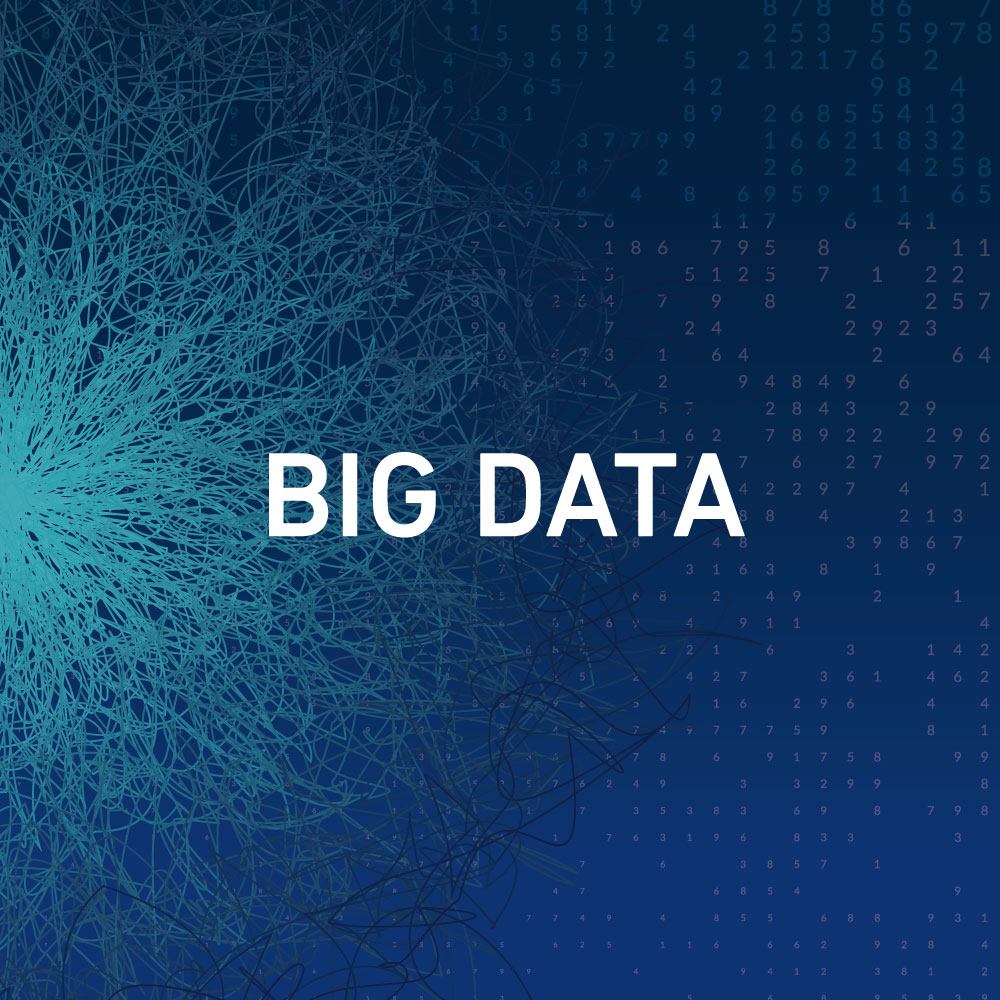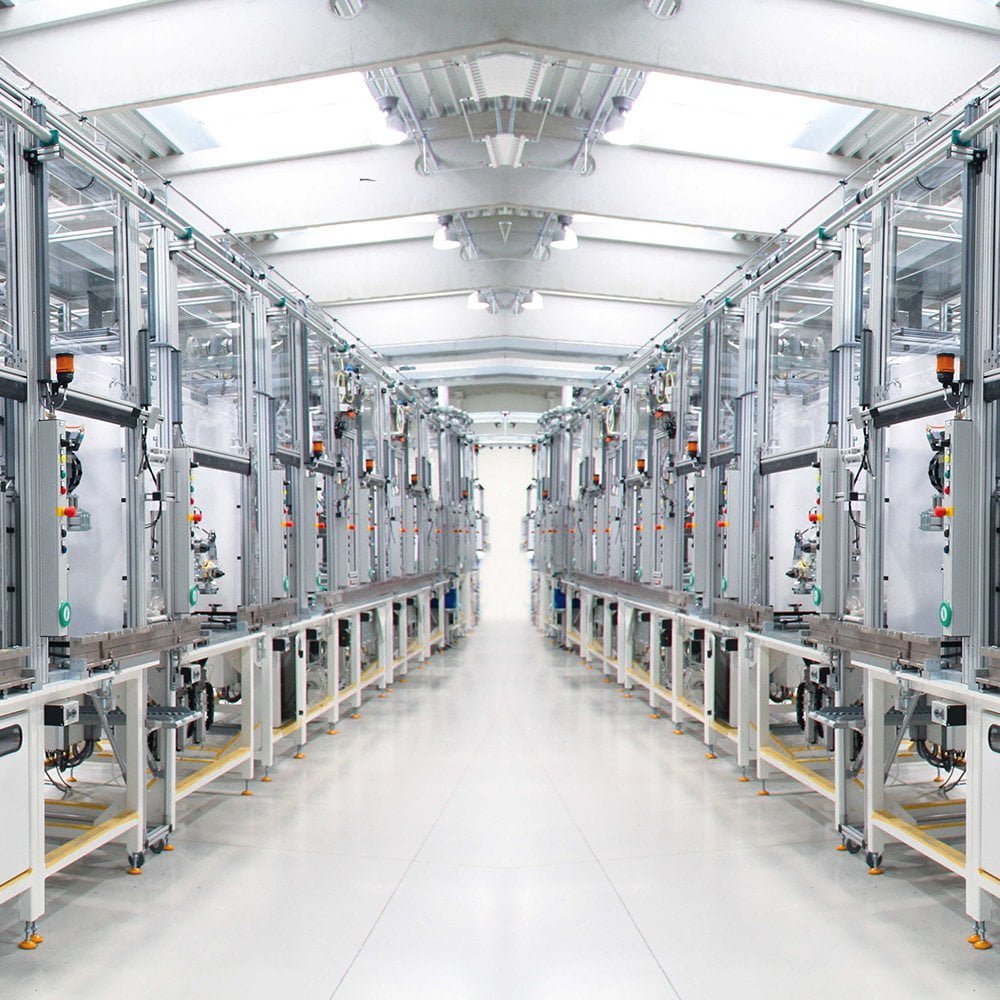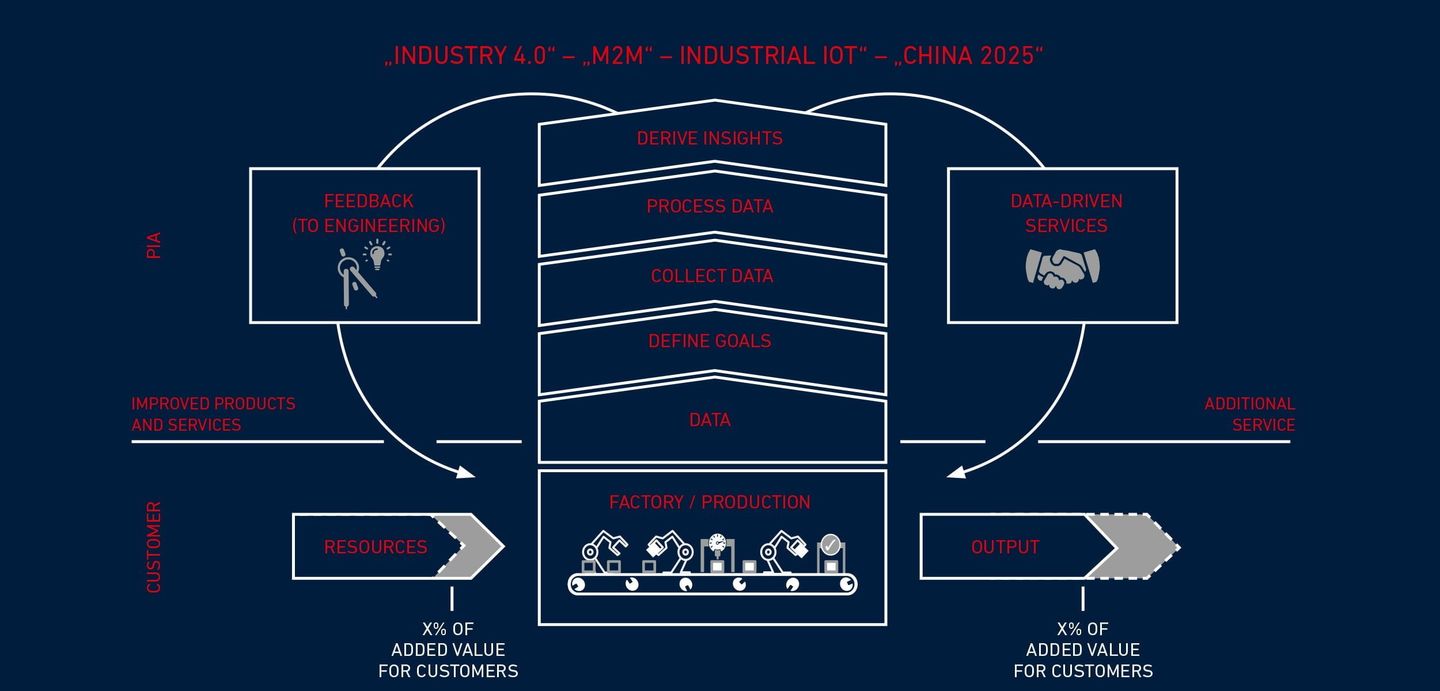

Industry 4.0
A marriage of automation and digitization
Automation and digitization are the future drivers of industrial value creation.
After the mechanization, electrification and computerization of the industry, the arrival of the Internet of Things and services into factories ushers in a 4th industrial revolution. In the future, our customers will globally interlink their machines and production equipment as cyber physical systems (CPS).
A completely new production logic prevails in the newly created smart factories. CPS participants in the smart factories exchange information & relevant data to optimize decentralization. This leads to network learning effects and further increases in production efficiency.
This development not only leads to an increase in efficiency in the production facilities, it also enables new service models for facility manufacturers. Assembly and testing systems independently monitor your production capability and report any faults that occur to the operator or directly to PIA at an early stage. All interventions in the facility are logged and are available for error analysis and for process and facility optimization.
Big data and data mining are an important part of Industry 4.0 and play a decisive role in its development. PIA makes use of this data for various evaluations by anticipating future conditions based on historical data and by using predictive methods (e.g. component replacement, effects of downtimes etc.).
With Industry 4.0 solutions, PIA provides its customers with the technology they need to achieve significant gains in productivity and increase competitiveness in the dynamically networked markets of the future. PIA also uses this evolution internally to perform improved engineering based on real-time data.
How is Industry 4.0 changing the production of merchanidse and goods?
Used in conjunction with the automation of manufacturing processes, digitization is aimed at creating an intelligent cross-company production chain that extends from raw materials to the final product. The result is a globally networked production that transcends national borders, factory locations, specialist departments in companies and company boundaries (global factory).
The benefits that companies can derive from this are enormous
- In production, networking and communication between machine and workpieces
- Very small lots are manufactured in cost-optimized production
- Flexible production solutions
- Optimized, real-time decision-making in the production process
- Increased resource productivity and efficiency
- Improved maintenance and repair alternatives
- Development and construction of “age-appropriate production systems”
- Lean management
Digitization is changing automated serial production through the multi-dimensional networking of production facilities, human beings and products at all levels.
Product
SMART FACTORY
- Automated facility configuration
- Production lot size 1
- Flexible process line stations
- Direct support for the workforce
TRACEABILITY
- Identification and collection of all process and product data
- Concepts for batch tracking
- Storage and transfer of data
- MES connection (Manufacturing Execution System; management, steering, control and monitoring of production)
Human
HMI | HUMAN-MACHINE INTERFACE
- Intuitive facility operation
- Intuitive presentation of relevant information
- Service and maintenance module
- Online documentation and online training
- Mobile facility monitoring
ERGONOMICS
- Clear and understandable machine operation
- Ergonomic parts handling and facility operation
- Reduction of noise exposure
Machine
TPM | TOTAL PREDICITIVE MAINTENANCE
- Reduction of system failures, commissioning and setup times, idle time and brief downtimes
- Prevention of creeping cycle losses
SUSTAINABILITY
- Reduction of air consumption
- Use of efficient components
- Consumption measurements
- Intelligent control technology
- Low emissions
